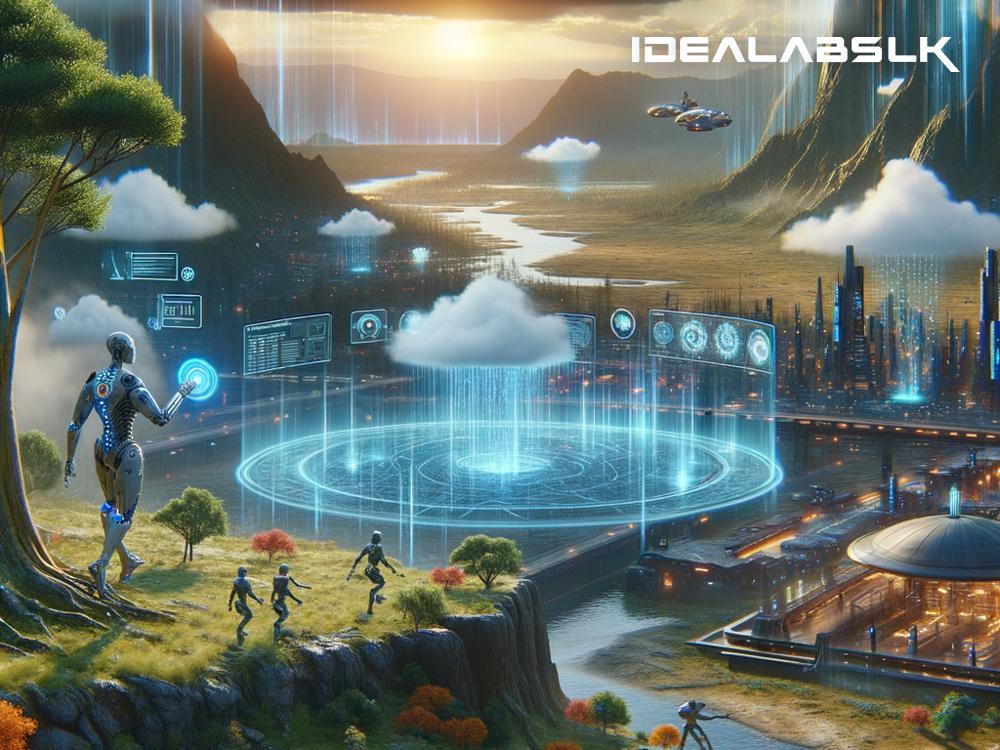In the not-so-distant future of 2025, the way we play and experience video games is poised for a remarkable transformation, thanks largely to the ever-evolving realm of artificial intelligence (AI). Picture stepping into a game world so realistic and reactive that it's almost indistinguishable from reality. Sounds like a dream, right? Well, get ready, because it's fast becoming our new gaming reality.
A Peek into the Future
Imagine walking through a lush, vibrant forest in your favorite adventure game. With AI's touch, each leaf rustles realistically in the wind, creatures skitter through the underbrush with life-like unpredictability, and the game environment reacts to your actions in ways that are deeply intricate and startlingly authentic. It's not just about looking real; it's about feeling real. From the weather patterns that change based on your in-game decisions to NPCs (non-player characters) that remember your actions and respond with eerily accurate human-like emotions, the future of gaming is all about immersion.
Bringing Game Worlds to Life
AI technology in 2025 is not just an upgrade; it's a game-changer. Traditional game environments, though visually impressive, often operate under a set of pre-defined rules with limited outcomes. They can't evolve. But with AI, game worlds become dynamic, growing entities. The AI doesn't just follow a script; it writes the script as you play. This means each playthrough can be vastly different based on a multitude of factors, tailored specifically to the player. The world changes with you, evolves with you, and reacts to you in unique ways – making each gamer's experience deeply personal.
Characters That Think and Feel
One of the most exciting advancements is in NPC design. Until now, NPCs have had limited responses, often making them feel robotic. However, in 2025, AI is set to revolutionize this aspect by introducing characters that learn from and adapt to player interactions. These characters will have their own desires, fears, and motivations, allowing for more complex relationships to form between player and NPC. Hate doing repetitive fetch quests? Imagine an NPC that learns your preferences and offers quests tailored just for you, or better yet, evolves alongside you, providing a consistent and rewarding narrative thread.
Adaptive Gameplay and Challenges
Gone will be the days of one-size-fits-all difficulty settings. AI in 2025 will be capable of analyzing your play style in real-time and adjusting the game's difficulty accordingly. Struggle with a particular kind of puzzle? The game might offer hints or modify the challenge slightly. Breeze through combat? Enemies could become more strategic or present new, unexpected challenges to keep you engaged. This adaptive difficulty will not only make games more accessible to a broader audience but also provide a consistently challenging and rewarding experience for all players, regardless of skill level.
Environmental Interactivity
Imagine a game world where every action has a reaction. With AI, the environment can become a character in its own right. Chop down a tree, and it might fall and alter the landscape, opening new paths or blocking others. Actions might affect the game's ecosystem, causing certain species to thrive or dwindle, which in turn affects the world's dynamics. This level of interactivity promises to blur the lines between player and world, creating ecosystems that feel alive and responsive.
A More Immersive Experience
One of the ultimate goals of integrating AI into gaming is to heighten immersion. By making game worlds more realistic and reactive, AI will allow players to truly lose themselves in virtual environments. The sounds, sights, and even the behavior of the world around will be meticulously crafted to mimic reality, creating an unparalleled sense of presence and immersion.
What This Means for Gamers
For gamers, the future looks bright and exciting. AI technology promises to elevate gaming from a mere pastime to an experience that's deeply engrossing and endlessly variable. Games will no longer be just about completing a set of pre-defined goals but about experiencing a living, breathing world that's as rich and unpredictable as our own. The boundary between game and reality will blur, offering experiences we can scarcely imagine today.
In conclusion, as we look toward 2025, it's clear that AI will revolutionize the way we interact with game worlds. By making them more realistic, adaptive, and responsive, AI is set to offer us a future where games are not just played; they are lived. This evolution in gaming technology promises not only to enhance our entertainment but to fundamentally change our relationship with digital worlds, making them an extension of our reality. And that, fellow gamers, is a future worth looking forward to.

